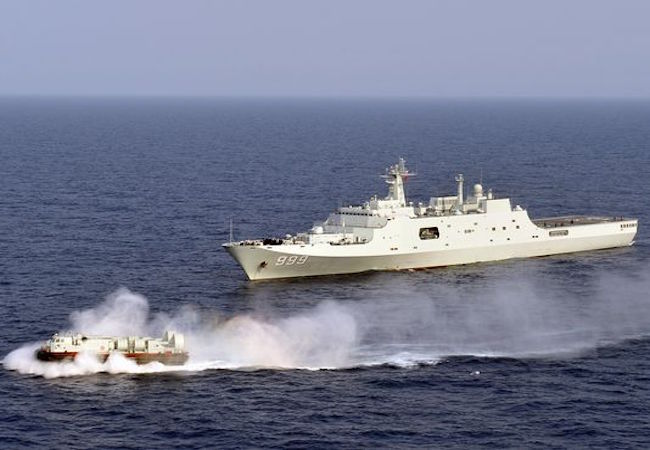
By Nasurullah Brohi
The South China Sea spreading over 3,500,000 square kilometers significantly provides the access as sailing route and serves the one-third of the global trade and transportation by connecting the Singapore, Malacca Straits and the Straits of the Taiwan. In addition, the immense richness in terms of oil and natural gas reserves beneath the Sea, the geopolitical importance of the South China Sea attracts the interests of the many countries in the region.
The claims of ownership by many regional states over the uninhabited islands and the territories are also a cause of the resentment. Although the apparent triviality and the physical features have been a matter of passionate contest flanked by the region’s coastal states but the issues of convolution of jurisdictions make the South China Sea one of the most disputed areas in the world. Remarkably, under the historical ownership of the territories and the further authorizations in the course of the United Nations Conference on the Law of the Sea, China holds an edge over others and gets a distinctive position besides the claims of other so-called bordering states. The Declaration on China’s Territorial Sea on 4th September 1958, maintained the breadth of the territorial sea of the People’s Republic of China 12 nautical miles whereas, the baseline composes the straight line that connects the coastal islands moreover, the Declaration also applies to the all territories of the People’s Republic of China including the Paracel and Spratly Islands.
The Third United Nations Conference on the Law of the Sea also affirms that a coastal state is allowed to reasonably define the breadth and limits of its territorial sea according to its economic development and national security. The extra-regional involvements around the South China Sea has become a pressing issue for the region. Since the U.S., views of its Super Power status and the consideration as a Pacific-Power are some of the motives that thrust its regional allies towards the ambitions of collectively seeking an over-enhanced cooperation for the control of the areas around the South China Sea. China advocates by expressing the repeated proscriptions of the international law principally abide the U.S. and its allies to refrain from any interference in the affairs of the South China Sea. Moreover, China’s credence for dissuading any possible confrontation can become delicate on the pretexts of the Freedom of Navigation particularly the recent penetration by the US navy along with the naval destroyers by sailings within the 12 nautical miles of the China’s Xisha Islands.
China’s tendency of soft policies often becomes a reason that usually leans on seeking the options of reconciliation. Such distinct natures of policies pursuing neutrality and the bilateral and multilateral cooperation for business opportunities significantly encourage the environments of political, economic and strategic stability. The unique features of its foreign policy also enable it to seek the resolutions of critical issues through diplomatic and political means rather than aggressive designs and posing threats to other countries in the periphery. However, the recent move is serious perceived as very threats to China’s sovereignty and blamed the US as a reason of growing militarization of the region which also compel and push China towards the escalation. China calls the US moves a subduing act that undermine the international laws and deliberately over-sights the universal obligations.
The recent China’s proclamation of creating an international maritime center to protect its national sovereignty however, any purposeful ignorance in the future could seriously become a severe security concern in the region since the posturing of the guided missile systems within the 12 nautical miles off the China’s Xisha Islands further add fuel to the chaotic situation also greatly contribute in provoking the current course of confrontation.
The inherent paradoxes of the great power capricious budge to be abide by the international laws. The United Nations Convention on the Law of the Sea that abides all the states’ admission to the regulations on international waters therefore any ignorant ambitions would obviously become a replication of the circumventing the obligations of the international laws and regulations.




